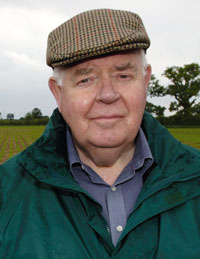David Richardson: What will Obama mean for farmers?

Like it or not, America is still the dominant economic force in the world. Whether that will still be the case at the end (whenever it is) of the current economic crisis will depend heavily for the next four, or perhaps eight years, on the success or otherwise of President Obama.
We must wish him well, for as we have seen only too clearly recently, when America sneezes the world catches a cold and expectations of him are daunting.
Obama’s campaign watchwords were “change” and “yes we can”. Changes are inevitable and necessary and in the first few days of his administration, have already begun to happen. But whether the rhetoric that implied those changes would transform the world into a better place were justified will take longer – probably a lot longer.
But what of agriculture? My enquiries suggest we should not expect significant changes in policy that current US support for more free trade through the Doha Round of the World Trade Organisation will continue, albeit while support for domestic agriculture via countercyclical aid and other means continue. As ever, America favours free trade when it helps it to export, but is less enthusiastic when it leads to more imports. Although US officials would, of course, deny this is the case.
America will also continue to encourage and exploit agricultural technology developed by research institutions (whose public funding has increased in recent years, in comparison with this country where it has declined) and multi-national corporations based there. Furthermore they will continue to cite “irrefutable scientific evidence” of the safety of such things as genetically modified commodities and hormone-treated beef. They will continue to punish countries for refusing to buy such products “for political or social reasons” by denying them access to US markets.
It also seems likely that bioethanol production from maize, to be blended with fossil fuels, will continue to increase despite some questions over its efficacy and fears that it might exacerbate food shortages in the future. The reasoning behind this prediction is that President Obama strongly supported ethanol production during his election campaign and that he has chosen Tom Vilsack as his Secretary of Agriculture.
Secretary Vilsack has also spoken out in favour of biofuels. He was, in fact, a democratic presidential candidate until February 2007 when his campaign ran out of money and he switched to support Obama.
Interestingly his appointment was opposed by the Organic Consumers Association which accused him of favouring large industrial farms and genetically modified crops.
Moreover Vilsack was the founder and former chairman of the Governor’s Biotechnology Partnership and was named Governor of the Year by the Biotechnology Industry Organisation, an industry lobbying group.
His appointment was unanimously confirmed by the Senate on January 20.

